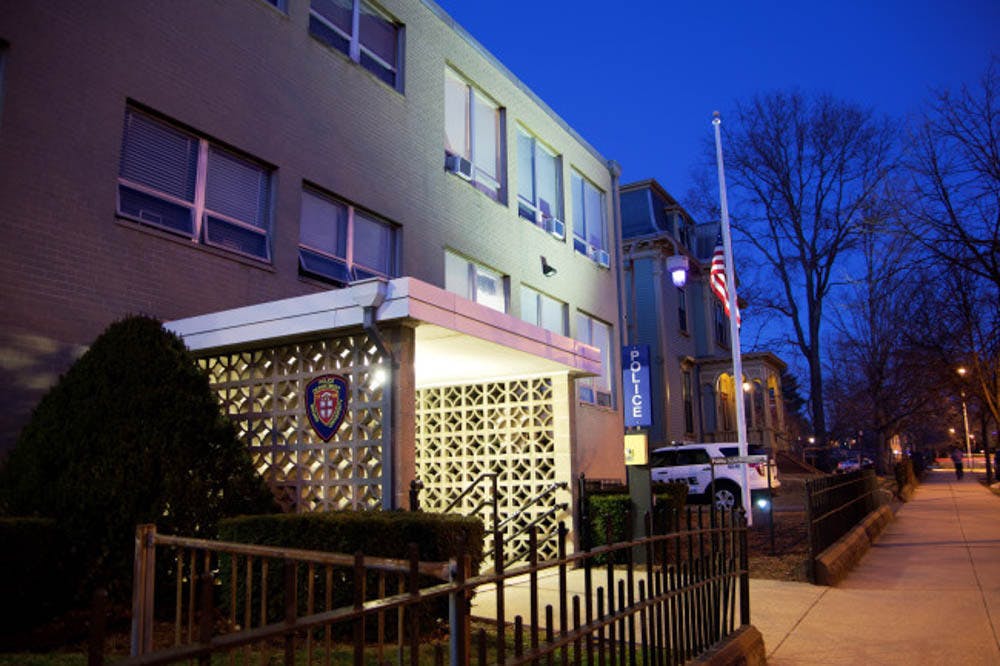Mark J. Porter, executive director and chief of Public Safety, will step down from his position at the end of June 2021 after 15 years of working with the University. He will continue to lead the Department of Public Safety until then, according to a Dec. 15 Today@Brown announcement.
Porter joined the University in 2005 after 21 years of experience in campus law enforcement, Executive Vice President for Planning and Policy Russell Carey ’91 MA’06 wrote in the announcement.
Porter’s “experience leading and improving comprehensive safety programs on university campuses had an immediate and positive impact,” Carey wrote, adding that Porter carried out plans to move toward a new DPS model in which police officers are armed. This decision to arm campus police officers was made prior to Porter’s arrival, and he oversaw its implementation and completion.
Under Porter’s tenure as chief, he also developed new safety policies and accountability measures. These new programs “have resulted in a more diverse workforce, a highly regarded officer training program, significant improvements in the use of information technology … and an overall commitment to integrity and the highest of standards and expectations,” Carey wrote.
DPS was reaccredited five times by the Commission on Accreditation for Law Enforcement Agencies and obtained R.I. State Accreditation under Porter, according to Carey. Porter also received the Distinguished Community Contribution Award from Providence’s branch of the National Association for the Advancement of Colored People and the Distinguished Leadership Award from The Rhode Island Guardian Association. Both of these awards recognized Porter for his “leadership and commitment to the community,” Carey wrote.
Carey wrote that Porter’s advance notice for his resignation allows for enough time to select a qualified successor, as well as for the Brown University Community Council to more acutely address debates about the role of campus safety and policing at the University. Porter’s decision to step down comes on the heels of significant backlash against DPS, especially in light of the Black Lives Matter movement and national and local calls to defund the police.
Administrators and students discussed aspects of campus safety, changes to dorm lockout policies and an external review of DPS at an Nov. 18 BUCC meeting, the first of a series of conversations that will extend into the spring to address concerns about policing at Brown, The Herald previously reported.
Earlier this year, Grasping at the Root, an abolitionist coalition at the University, began its Campaign for Communities Without Policing, The Herald previously reported. Launched in response to the Black Lives Matter movement, the initiative’s demands include the abolition of DPS, in addition to measures by the University to address carcerality and white supremacy on campus and unjust financial practices.
Grasping at the Root argues on its website that through DPS, the University “serves as a ‘private’ extension of the carceral state, directly contributing to antiblack policing practices in Providence.” The coalition advocates for ending DPS arrest capabilities, disarming DPS officers and defunding DPS as a whole, among other reforms, according to the group’s website.
Porter previously wrote in an October email to The Herald that he is open to students’ input on the department’s approach to policing.
“We certainly acknowledge and understand the important questions being raised about policing in the 21st century,” he wrote. “Our focus in the Department of Public Safety is protecting the safety and well-being of all students, faculty, staff and community members in partnership with stakeholders both at Brown and in the local community.”
In 2016, members of the Brown University Security Patrolpersons’ Association conducted a secret ballot vote of “no confidence” in Porter and Paul Shanley, the deputy chief of police of DPS at the time, The Herald previously reported. Shanley passed away in 2019.
As a part of BUSPA’s monthly meeting, this motion of no confidence was informed by how DPS had “steadily deteriorated in terms of morale, performance, direction, vision and most importantly departmental direction,” BUSPA officers wrote in the email, which was reviewed by The Herald.
BUSPA membership comprises University police officers, public safety officers, building guards and dispatchers. Of the 67 members, 59 percent voted, of whom 87.5 percent voted no confidence, The Herald previously reported. Instead of calling for Porter and Shanley to resign, however, BUSPA hoped for DPS to be more responsive to pressing concerns that had arisen, such as how Porter was “never around,” The Herald previously reported.
Porter did not respond to requests for comment by press time.
According to Carey, Porter’s leadership has “aided in keeping Brown and the surrounding community safe.”
“I have had the pleasure of working closely with Mark for all of his time at Brown and know first-hand his leadership and dedication to the members of the Department of Public Safety and to the campus community as a whole,” Carey wrote. “I hope that all Brown faculty, students and staff will join me in thanking Chief Porter for his distinguished service and for his care for our individual and collective safety.”

ADVERTISEMENT




